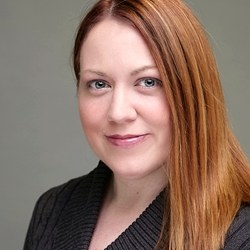Many marketers have lamented the rise of the "online marketing guru/jedi/maven/hacker," especially because many people who use such monikers have no formal training and little industry experience.
Don't miss a MarketingProfs podcast, subscribe to our free newsletter!
On this episode of Marketing Smarts, I talk with Temitayo Osinubi and Michelle Bassett, recent graduates of Full Sail University's Internet Marketing program who've written a book on marketing called Beyond Buzzwords: Social Media, Mobile & Other Marketing Buzzwords Ain't the Half of It!
I also talk with C.C. Chapman, a marketing expert and consultant, co-author of the best-selling Content Rules and the author of Amazing Things Will Happen, and college instructor, about the modern career path for marketers. In addition to teaching marketing at Bentley University, C.C. develops courses for Lynda.com.
I invited C.C., Temi, and Michelle to Marketing Smarts to discuss options for aspiring marketers, from pursuing a degree in marketing to self-study (books, blogs, podcasts, articles, webinars, and the like), as well as more formal workshops and online training sessions (like those offered by MarketingProfs).
We also consider the benefits of getting a job for a company or agency before pursuing a degree in marketing.
Here are just a few highlights from our conversation:
Structured education can save aspiring marketers years of learning by trial and error (03:11): Temi: "We decided that [a degree in marketing] was something that we needed after we had blown literally tens of thousands of dollars and years of our lives trying to learn it by ourselves. There are two schools of thought when it comes to education in Internet marketing. There's the 'structured education' school of thought and there's the 'just Google it' school of thought, and, at first, we just Googled it... and that led us down a series of rabbit holes that didn't turn out well, and finally we decided that it was time to get serious and that's how we found ourselves at Full Sail."
Hiring managers, the quality of education programs varies, so interview to assess knowledge and skills, rather than relying entirely on paper credentials (05:41): Michelle: "There should be something on the part of the interviewer's angle like a rubric. The main part of that rubric when you're hiring...for your digital marketing is, What strategy are they going to use to produce the results that they say they're going to produce?"
Many "gurus" promise results, but don't explain how they plan to deliver: (06:05) Michelle: "We freelance and have our own company as well, and so we run into these small businesses that have hired people for three or four thousand dollars who said 'I'm going to do this, this, this, and this. You'll have all these fans and all these leads.' The businesses then pay these people...and then they realize that, if you ask them what this person is doing for you specifically as far as a strategy, a funnel, an itemized plan, they've never got it. Any time you're hiring someone to do either a branch or the whole scope of your digital marketing, they need to come to you with a specific strategic funnel for either the exact situation you're going through or a hypothetical scenario if you are a CMO and you're hiring for a corporate job."
Marketing has changed, and marketing education needs to follow suit (18:40) C.C.: "The first thing I do when I set up my class is set up a Tumblr page for the class so I can clip news stories every single day that are happening. Back when we were in school, you had your textbook and you had your case studies. The same case studies got studied by every single class, year after year after year....
"But today, if you're teaching marketing right, the way I try to approach it...is it's real-time. Tuesday night is my class, and Tuesday afternoon something would happen and we'd spend a half-hour lecturing about it and talking about it, whether we're talking about crisis management or a new campaign that went live, or some new app came out. I want hands-on. When Snapchat released geofilters, I created one for the class and we talked about it...so they could see what it was. I think that's the difference. Things are changing so rapidly and there's new things happening every single hour."
Before investing in a marketing degree, consider your options (20:41) C.C.: "It depends who your teachers are. It 100% depends on the curriculum that you're going to go through. I teach at one of the best business schools in the country and I believe the students going there are...going to have a huge foot up on everybody else that they go up against. I'm saying that as a proud alumnus of Bentley, but I don't think everybody necessarily needs a structured marketing program. You can self-teach... You can learn on the job... It's not like performing open-heart surgery... You can make marketing up a little bit as you go along... Everybody learns differently."
To learn more about Temi and Michelle, visit ThinkBeyondBuzzwords.com or follow them on Twitter: @tembo8482 and @ceomichelleb.
To connect with C.C., visit CC-Chapman.com or follow him on Twitter @cc_chapman.
C.C., Temi, Michelle and I talked about much more, so be sure to listen to the entire show, which you can do above, or download the mp3 and listen at your convenience. Of course, you can also subscribe to the Marketing Smarts podcast in iTunes or via RSS and never miss an episode!
This episode brought to you by MarketingProfs Made to Order Content:
At MarketingProfs, we've published content that people actually want to consume since 2000. Our original content services combine our independent, credible thought with your brand's voice, to deliver content based on your goals. Let us help you succeed by creating content that's Made to Order—just for you.
Music credit: Noam Weinstein.
...sign up for free to continue reading
Don't miss a MarketingProfs podcast, subscribe to our free newsletter!
Published on August 10, 2016







